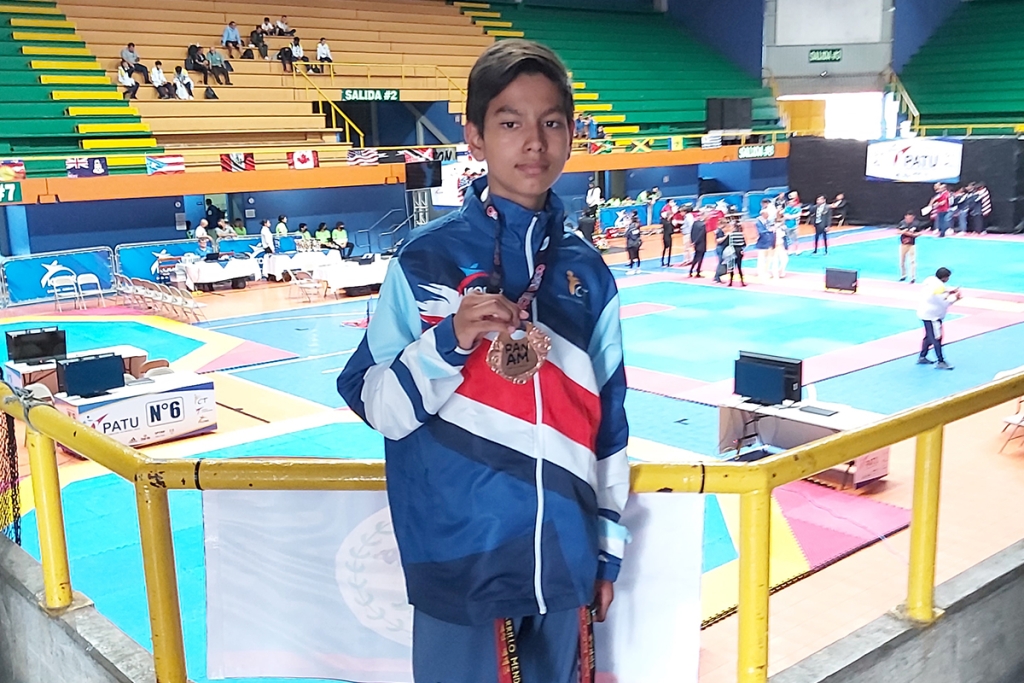COSTA RICA: Salesian student wins medals on national taekwondo team

Sports programs are important for social integration and the promotion of values like teamwork
(MissionNewswire) Fabian Carillo, an 8th grade student at the Don Bosco Center for the Development of Skills, known as CEDES Don Bosco in Costa Rica, has been a member of the national taekwondo team for the past three years. In international competitions, he has participated in meets in the United States, Panama, and Nicaragua, and has won several gold medals.
In Carillo’s most recent event at the Latin American Taekwondo PANAM, he won a bronze medal, taking first place in his category at the Costa Rican level and third place at the Latin American level.
His father, Alejandro Carillo, says that Fabian handles his role as an athlete well and that as a student he gets very good grades. His next competition will be in August in Nicaragua. He is already hard at work training for the event. Carillo practices taekwondo after classes at school, and trains two hours every day six days a week. He hopes to soon have the opportunity to compete in a Taekwondo World Cup.
“Sports programs are important for social integration and the promotion of values like teamwork, communication, respect, and team spirit,” said Father Gus Baek, director of Salesian Missions, the U.S. development arm of the Salesians of Don Bosco. “Learning and playing team sports encourage leadership skills as well as teach youth to work as part of a team. Students also learn important social skills and have opportunities for growth and maturity.”
According to the World Bank, more than 1.14 million Costa Ricans live in poverty, which is more than 21 percent of the population. In addition, poor Costa Ricans are more likely to live in a single-mother household and have a higher-than-average number of children under age 5, as well as other dependents living in the same home. Dependents include children under age 14 or adults over age 65. More than 77 percent of poor Costa Ricans work in the informal sector and have roughly three years less schooling than their peers who are not living in conditions of poverty.
###
Sources:
ANS Photo (usage permissions and guidelines must be requested from ANS)
ANS – Costa Rica – CEDES Don Bosco student among Latin America’s top Taekwondo athletes
World Bank – Costa Rica




